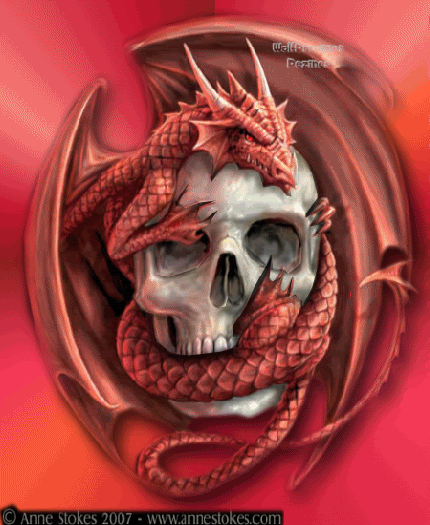Begging to differ - BN heading for a split
The term ‘Ketuanan Melayu’ would give rise to a tuan and hamba (master and slave) situation so let us use the proper term as provided for in the Federal Constitution.
The Malaysian Insider
Sometime in June, when cries for him to resign had dropped by a decibel or two and when he harboured hopes of staying on till 2010, Prime Minister Datuk Seri Abdullah Badawi started making plans for a national convention of the Barisan Nasional.
He commissioned a comprehensive survey of more than 3,500 Malaysians to understand what they truly felt about the ruling coalition. The findings confirmed his worst fears: a growing number of Malaysians did not believe that only the BN had the tools or ideas to govern the country.
Abdullah wanted to use the survey as a base for a thorough discussion of the coalition and its future road map. He got sidetracked by unfolding events and the BN convention got pushed back and back.
In October, Abdullah announced that he would not contest the party elections but would stay on until March 2009 to finish a slew of initiatives. Bundled in that package was the BN convention.
Checks by The Malaysian Insider showed that no date has been fixed for the meeting of the 13 component parties of the coalition but government officials say it will probably be in mid-February.
A government official said: “PM still believes that it is crucial for BN leaders to meet and thrash out all their concerns and differences and reach a new level of understanding. Otherwise, it will be tough for Barisan to move forward or look beyond what happened during the elections.’’
That fact has been underscored repeatedly since March 8. Defeat and rejection by a swathe of voters has forced MCA, MIC, Gerakan and PPP to rethink their own political strategies including their relationship with the senior partner of BN, Umno.
In recent days, statements by Datuk Chua Soi Lek, Datuk M. Kayveas and Tan Sri Koh Tsu Koon have reminded Malaysians that more than eight months may have passed since BN were shocked at the polls, but the clamour for change remains strong among BN component parties.
Chua urged for an end of the ‘Ketuanan Melayu’ concept, which he said created the impression of a master and servant relationship between Umno and BN parties. He was slammed for going down that path by a clutch of Umno leaders including Umno Youth chief Datuk Seri Hishammuddin Hussein.
But several days later, Gerakan chief Tan Sri Koh Tsu Koon supported Chua, urging Umno to use the term “special position” of the Malays instead of ‘Ketuanan Melayu’.
“The term ‘Ketuanan Melayu’ would give rise to a tuan and hamba (master and slave) situation so let us use the proper term as provided for in the Federal Constitution. Article 153 safeguards the special position of the Malays and natives, the Rulers and Islam as well as protects the legitimate interests of non-Malays.
“We must understand the Federal Constitution, parliamentary democracy system and constitutional monarchy in totality, ‘’ he said.
Sandwiched in between those two comments was a stark warning from the People’s Progressive Party. Kayveas said that his party will pull out of BN if there are no substantial changes to the Internal Security Act. He also gave a broad hint that he expects the BN to change the way it has been operating if it was serious about rebranding itself.
“The Barisan has to make changes before the next general election. It is suicidal if we do not plan for the next elections. The problem with the Barisan was its success in the past 50 years. Success is a lousy teacher. It seduces smart people into thinking they can’t lose,” he said.
“The March elections have already shown what the voters are looking for in good governance and multi-racialism. The Barisan has conducted numerous postmortems at all levels to gather input on what went wrong and why the voters rejected Barisan.
“The solution has always been multi-racialism, but to date Barisan is still caught in its own political racial configuration – that what is being spoken is not being implemented fast enough, ‘’ he said.
It is not difficult to understand why Messrs Chua, Koh and Kayveas are still pushing for a change. Their constituents - Chinese and Indians - deserted the BN in droves on March 8.
The BN survey suggests that, unless there are substantial changes to the manner Umno is preceived by non-Malays and there is evidence that the ruling coalition is capable of meeting the expectations of younger voters, the bank of non-Malay votes could remain with Pakatan Rakyat for the foreseeable future. This scenario could spell the end for MIC, Gerakan, MCA and PPP.
But sceptics do not believe that holding a convention for BN parties will make much difference. They note that for any real change to happen, it must be driven by Umno.
Anecdotal evidence suggests that Umno politicians are less willing to listen to their colleagues in BN today than they were in April or May. The sentiment in the ruling party is this: the time for talking and taking shots at Umno and shortcomings of the BN are over.
Commenting on Chua’s call to drop the ‘Ketuanan Melayu’ concept, Hishammuddin said: “It is better for leaders of BN component parties to join the Opposition if they want to continue questioning historical facts.’’
He is not alone. Other Umno leaders also believe that their friends in BN have become too vocal and need to pipe down and accept the reality of politics in Malaysia. If this “I know best’ approach permeates through discussions at the BN convention in February, it could persuade a few BN leaders that their future may lie outside the coalition.
Worse yet, it could be the clearest sign yet for many Malaysians that the BN - the political behemoth - is on its last legs.



















![[persona-1.jpg]](https://blogger.googleusercontent.com/img/b/R29vZ2xl/AVvXsEhdlUdKM9p3wjHQ82JAAYrcDgaSwRKghyaZ8vsjmb2nR39C_tOwz4n2bTANThABRbeizpf7mTpIornirzubEgrMYtXyW1BzWKH7jEHSe5FnFx-slp8fNWHZM_qBwZ0aXAMjMX_7TnehR2A/s1600/persona-1.jpg)



























 "Short of jumping for joy, [the VERIUNI laundry soap] is the most exciting product for the laundry that I have found. I buy [the laundry soap] in a Gallon at $21.95. I put a pump in the gallon (best value) and two squirts into the laundry. My whites have never been whiter and my cloths don't have the perfume smell that the store brands do. Two squirts in a full load equal less than 1/4 cup, less than two ounces. With one gallon equaling 128 ounces, that is 64 loads of laundry, or $0.34 a load. (If you add shipping, the cost is $0.50 cents per load.) That's almost half of what [many major store brands] require. Best yet, your cloths don't smell! Simply amazing. Check the link and try a bottle. You can buy by the quart, but with shipping and handling, a gallon is best. The entire product is returnable. But...you won't return it because you will love it. It's great! This is one of the best lines SFI carries."
"Short of jumping for joy, [the VERIUNI laundry soap] is the most exciting product for the laundry that I have found. I buy [the laundry soap] in a Gallon at $21.95. I put a pump in the gallon (best value) and two squirts into the laundry. My whites have never been whiter and my cloths don't have the perfume smell that the store brands do. Two squirts in a full load equal less than 1/4 cup, less than two ounces. With one gallon equaling 128 ounces, that is 64 loads of laundry, or $0.34 a load. (If you add shipping, the cost is $0.50 cents per load.) That's almost half of what [many major store brands] require. Best yet, your cloths don't smell! Simply amazing. Check the link and try a bottle. You can buy by the quart, but with shipping and handling, a gallon is best. The entire product is returnable. But...you won't return it because you will love it. It's great! This is one of the best lines SFI carries."



























No comments:
Post a Comment